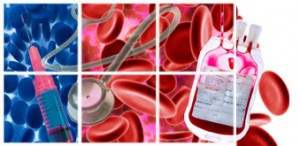The MAES initiative designed and developed technology that collects data from multiple sources, analyzes the data for trends and patterns, and, using handheld devices, deliver context sensitive, location based alerts and advice to users on healthcare, disease, safety, and environmental related issues.
Humanitarian relief, disaster recovery, nation building: these missions are becoming more significant for both military and non-governmental organizations every day. Health awareness and a proactive approach to health outcomes are critical to these missions, but, in many developing countries, even basic reporting of the health status of affected populations can be a daunting task. Communications infrastructures are minimal, transportation may be difficult, time is short, and the focus is often on addressing basic human survival needs. Establishing baselines for epidemiological awareness may be too time consuming and difficult to be a priority.
The Mobile Application for Healthcare, Epidemiology, and Safety (MAES) initiative is designing and developing a mobile application that provides location based alerts and advice on healthcare, epidemiology, and safety. The MAES technology will collect data from multiple sources and data formats including open source, unstructured data from websites, weather information sites, news feeds and blogs, as well as structured and unstructured data including SMS, e-mail, forms, images, and geo-referenced data. The MAES technology will also extract healthcare, epidemiology, and safety information; analyze trends, patterns, and geospatial analyses; forecast comprehensive, multi-dimensional health and safety statuses, and provide alerts and advice to users. Data mining, machine learning, and forecasting algorithms will be used to analyze the trends, patterns, and spatiotemporal factors affecting environmental, disease, and safety profiles at specified locations, and MAES will use this information to deliver context sensitive, location based alerts, and advice to users on healthcare, disease, safety, and environmental related issues.
 The MAES technology will provide this functionality via a wireless mobile device. Because a number of countries lack the infrastructure in many research field settings to accommodate fixed line Internet access, use of wireless networks for mobile health, disease surveillance, and epidemiology analysis is paramount. The MAES mobile app will support a spectrum of features, ranging from SMS to e-mail, location based services (GPS), and forms for collecting data. The app will also allow users to select and configure reporting and analysis mechanisms according to need, availability and price. In addition, the app will support a range of user interfaces, ranging from SMS based alerts and notifications to GIS maps, e-mails and images, allowing users to configure the relevant information and customize the format of the output visualization.
The MAES technology will provide this functionality via a wireless mobile device. Because a number of countries lack the infrastructure in many research field settings to accommodate fixed line Internet access, use of wireless networks for mobile health, disease surveillance, and epidemiology analysis is paramount. The MAES mobile app will support a spectrum of features, ranging from SMS to e-mail, location based services (GPS), and forms for collecting data. The app will also allow users to select and configure reporting and analysis mechanisms according to need, availability and price. In addition, the app will support a range of user interfaces, ranging from SMS based alerts and notifications to GIS maps, e-mails and images, allowing users to configure the relevant information and customize the format of the output visualization.
The MAES initiative leverages ongoing KBSI work in biosurveillance and epidemiology tracking and analysis. KBSI’s focus in these projects has been on optimizing the use of data posted to the web by automating the processing of news reports, flagging reports of potential interest, highlighting or tagging elements within reports relevant to community members, and extracting data for later analysis based on community-member guidance. KBSI’s Biosurveillance Dashboard processes on-line, open-source text materials for the extraction of analysis-ready data. This data extraction is achieved by downloading and pre-processing news feeds and online, open-source text materials. The Biosurveillance Dashboard has the capability to extract and process symptoms and diseases and to recognize events like disease outbreaks—capabilities that will also be transitioned to the MAES technology.
The MAES technology has the potential to be a one-stop app for comprehensive, integrated healthcare, epidemiology, and safety management. U.S. military and humanitarian aid and disaster relief operations, deployed U.S. troops, and mobile users in the general public can benefit from the MAES technology’s capabilities. KBSI is also involved in designing and developing a biovigilance system for the Department of Health and Human Services (HHS) that can also benefit from the MAES technology as can other health care focused organizations like the Center for Disease Control (CDC), the National Institute of Health (NIH), and the Environmental Protection Agency (EPA) in addition to the DoD medical research and environmental surveillance communities.
